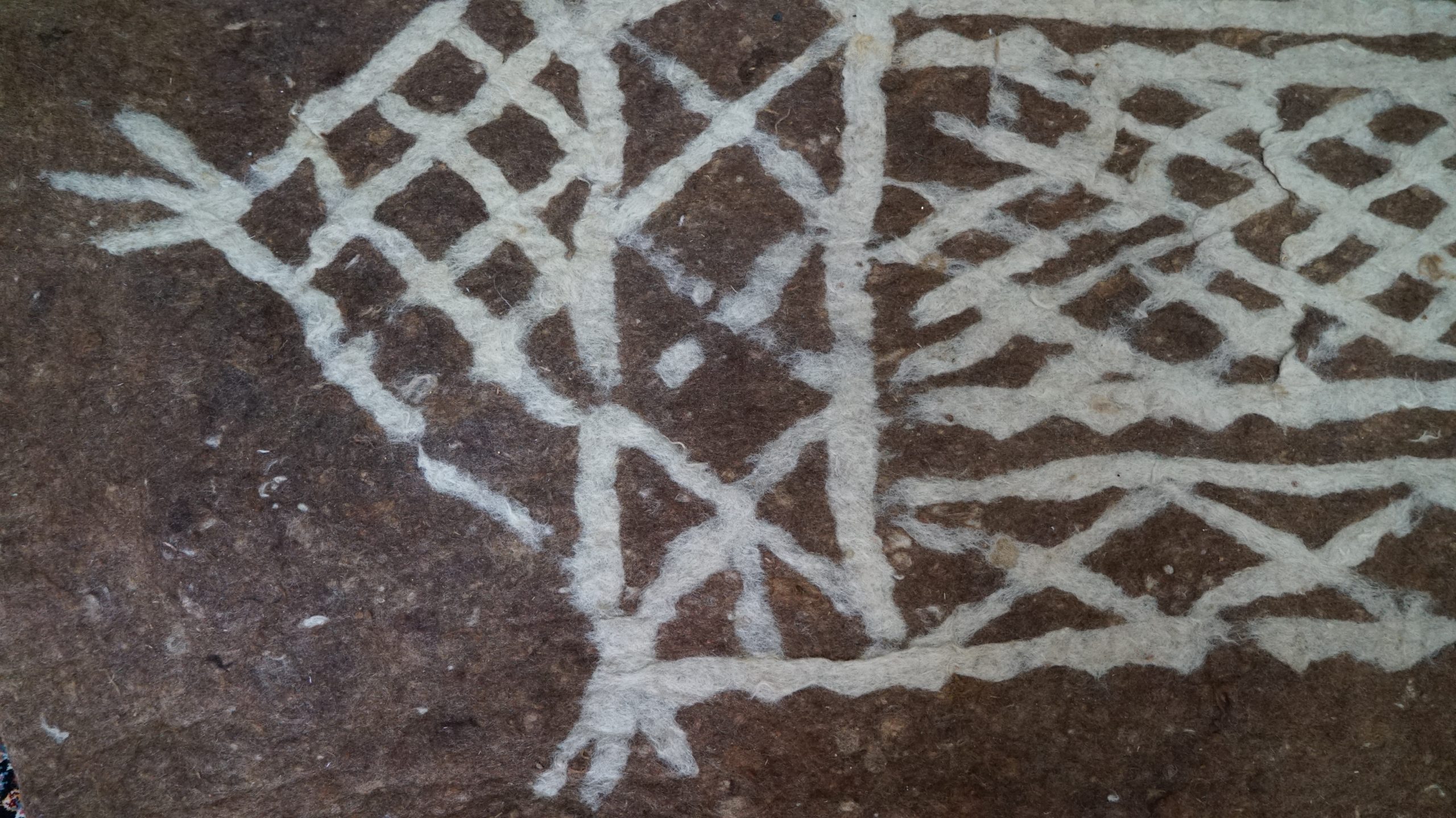3,188 Total views, 1 Views today
By Renas Babakir
In January 2023, a team of collaborators, led by researcher Renas Babakir were delighted to launch a sixteen-month research project with Culture Project, with an aim to document an ancient and disappearing textile craft in Southern Kurdistan: “Documenting the Lost Practices of Kurdish Felt and Felt-making in the Foothills of the Zagros Mountains”. The project was awarded a grant from the Endangered Material Knowledge Programme (EMKP), hosted by The British Museum and funded by Arcadia.
The aim of this project is to document a non-woven, ancient textile technique of felt-making from wool by the last known practicing Kurdish felt-maker, Salim Ali in the foothills of the Zagros Mountains. Felt is considered to be the earliest form of textile. In the past, felt was a very significant fabric of society, particularly in the Fertile Crescent, Anatolia and Central Asia. It was part of everyday life as well as being used during rituals and ceremonies. Likewise, for the Kurds, felt was widely used until the mid 1970s; they continued their ancestral tradition and persisted to make and use felt. The ancient method of felt-making and the use of felt garments are still alive among the Kurdish community along the Zagros Mountains, but are disappearing due to conflict and political unrest in the region as well as rapid changes in the textile and fashion industries. Despite the historical and cultural significance of felt among the Kurdish people, there has been a lack of scholarly attention paid to this ancient craft in the region.
This project documents in detail the techniques practiced in using wool fibre to produce felt, known as “Libad”or “Newg” in Sorani Kurdish and “Kulav” in Kurmanji Kurdish. Libad is used to produce protective clothing and rugs, such as traditional narrow Kurdish rugs, hats, waistcoats and shepherd’s coats, known to the community for as far back as they can remember. By considering an ethnohistorical approach, the team works towards a comprehensive understanding of the historical and cultural significance of felt among the Kurdish people.
The documentation process includes video and audio recordings, photographs, illustration and written records made during the observations and interviews conducted with the felt-maker during the fieldwork. The documentation also includes the living memories of other felt-makers who used to make felt as well as those who still use and praise traditional felt garments and rugs. In addition to that, the team of researchers, in an on-going process, have been examining felt from the region preserved at museum collections including, The Erbil Textile Museum, The Textile Department at the British Museum and The Pitt Rivers Museum.
The research team has recently returned from a two-month long fieldwork trip to Southern Kurdistan where they gathered an immense amount of data that is currently under study as the project progresses.
Culture Project is a UK-based enterprise that aims to promote Kurdish culture in Kurdistan and in the diaspora through projects and publications. Culture Project was established in 2016, and acts as a host institution for “Documenting the Lost Practices of Kurdish Felt and Felt-making in the Foothills of the Zagros Mountains”.
Endangered Material Knowledge Programme (EMKP) was established in 2018 to support the documentation of material knowledge systems that are under threat and in danger of disappearing. The EMKP is hosted by the British Museum and funded by Arcadia – a charitable fund of Lisbet Rausing and Peter Baldwin. In the last five years, the EMKP has awarded seventy grants in forty-four countries. “Documenting the Lost Practices of Kurdish Felt…” is one of the projects that was awarded a grant in the programmes’ 2022 round of grants.
On the 8th of June, 2023, the EMKP celebrates its five-year anniversary, hosted at The British Museum to celebrate its achievement since its inception in 2018. The event will be joined by a number of grantees to present their works and experiences in the field. Renas Babakir will display some of the materials and photographs gathered from the team’s recent fieldwork in Southern Kurdistan.

